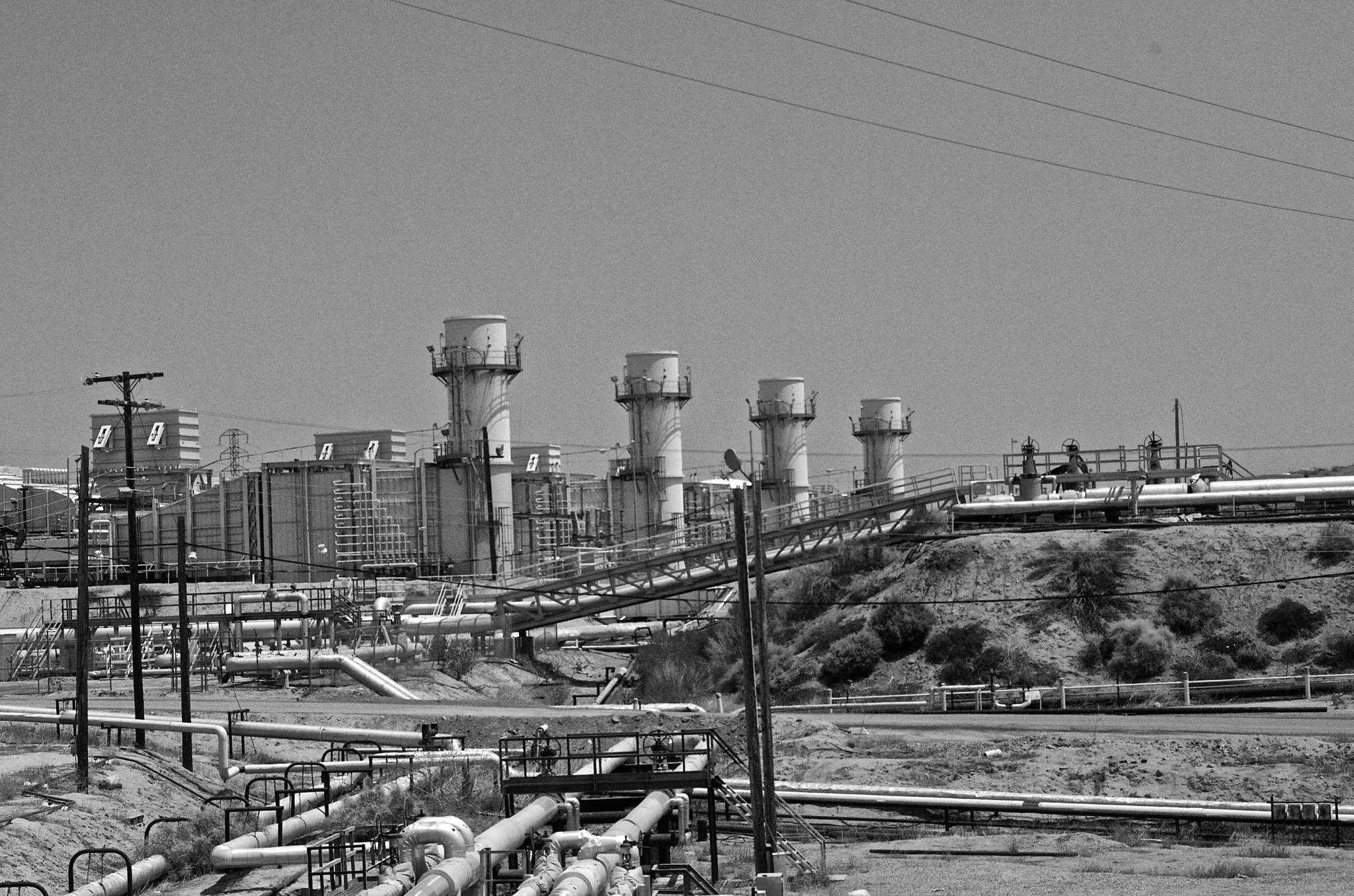Photo by Jerry Mathes III
Patrick Osborne, Daniel Tsvetanov, Bogdan Polishchuk, Alexander Geysman, Timothy Abraham, Glenda Pavon Suriel
ExxonMobil: Asset Valuation Reporting Standards
In the oil and gas industry, many companies have gone through reductions in assets values over the past two years; this normally was accompanied by non-cash charges (expenses that reduce earnings but not cash flow), running into the billions of dollars. Concerns have mounted about oil companies’ ability to finance their capital spending programs while continuing to pay their dividends, investors have come to focus more on cash flows, which exclude asset write downs as the most significant indicator of financial health. Exxon did not follow other companies in taking non-cash charges for writedowns in the value of its assets. NY state’s attorney general, Eric Schneiderman, is investigating ExxonMobil over its reporting of its asset valuations. Exxon said in a statement that it had valued its assets in accordance with reporting standards. This attracts attention to the importance of transparency and ExxonMobil’s financial health amidst the period of low oil and gas prices in the last two years. NY state’s attorney general attention toward an industry leader, ExxonMobil, should be read as a signal to other companies. Companies are trying to continually get their finances right in this climate as well as keep investors pleased, but at the same time they need to play by the rules of the game in their financial and legal decision making and be ready to report on their activities.
Crooks Ed. New York state attorney- general widens Exxon-Mobil probe. Financial Times, September 16, 2016. https://www.ft.com/content/cde97ab2-7c2a-11e6-ae24-f193b105145e
Russia’s Nord Stream 2 on Track
Nord Stream 2 is the extension of an offshore natural gas pipeline between Russia and Germany, that would boost Gazprom’s ability to supply the German natural gas market. Gazprom’s partners are E.ON, Wintershall, Shell, OMV and Engie. Last week, Nord Stream 2 started the process aimed at gaining official approval of the Baltic sea states whose territorial waters pipeline will go through. Permit application was submitted to Sweden. There are four other countries that need to officially approve the pipeline – Finland, Denmark and Germany. The permit applications are planned to be submitted in early 2017. The new pipeline project has become increasingly politicized since 2014 after the Crimean crisis. Currently the half of the gas EU imports from Gazprom is pumped via Ukraine; Nord Stream-2 is part of transit avoidance strategy. There is a lot of skepticism about this project and an official approval is yet to be announced. Despite criticism, the construction is on track: in December or January, the pipes will be supplied for the realization of the project , according to Reuters.
Simon Johnson. Nord Stream-2 submits first pipeline permit application. Reuters. September 16, 2016. http://www.reuters.com/article/us-sweden-energy-nordstream-idUSKCN11M1I8
Svetlana Burmistrova. Russian Nord Stream-2 on track with pipes expected soon. Reuters. September 13, 2016. http://www.reuters.com/article/us-russia-pipes-gazprom-idUSKCN11J1FG
Iran’s Crude Oil Exports at 5-year Maximum
Iran is trying to retake market share that it lost as a result of international sanctions. Iran continues to increase production with the goal of reaching pre-sanctions levels. Export increases are made possible because of demand from India and European customers. There are fears that Iran’s strengthening presence in international oil market will not help the oil price dynamics.
Julianne Geiger. Iran Bumps Up Crude Exports To Highest Level In Five Years. Oilprice.com. September 16, 2016. http://oilprice.com/Latest-Energy-News/World-News/Iran-Bumps-Up-Crude-Exports-To-Highest-Level-In-Five-Years.html
‘Peak Oil’ is Dead
Bloomberg gives a perspective on general people’s expectations with an analysis of google searches for “peak oil”, done by Sanford C. Bernstein. The report says the topic is about 20 times less interesting to the internet users than 10 years ago, though the contrary notion of “too much oil” has somewhat steadily gained popularity throughout the years and recently has shown itself twice more popular than the conservative “peak oil”. Basically the worries that supply must end soon laid ground to the situation when we started doing something to postpone it.
https://www.bloomberg.com/news/articles/2016-09-12/here-s-one-sign-that-peak-oil-is-dead
IEA Releases Oil Market Report for September
Global oil demand is slowing faster than predicted, says report by the International Energy Agency. Numbers though are not as strong as the headlines, demand is estimated to rise 1.3 mb/d, which is just a correction from the previous forecasts. For the next year, slowdown is expected to be more prominent, analysts say. If the Paris Agreements will be set under way and the electric vehicles will gain popularity, the demand may start to reduce fast. The Oil Market Report is published monthly by IEA; it reviews the international oil market and gives projections for oil supply and demand.
IEA releases Oil Market Report for September. IEA. September 13, 2016. https://www.iea.org/newsroomandevents/news/2016/september/iea-releases-oil-market-report-for-september.html
New Geopolitics of Oil
Prominent industry expert Jason Bordoff from the Columbia University gives his opinion what all that means in a recent article for WSJ. According to this publication, the end of Oil Age might be in sight with all the consequences it brings, with increased risks of instability for states, whose economy relies on oil exports, and even reshuffling many points of current world order (like US – Saudi Arabia “oil-for-security” bargain). “Even if peak oil demand does not mean the world is getting off oil any time soon, expectations that oil demand would gradually decline over time would have seismic impacts on the market. Prices are set on the margin, so slight changes in demand can cause big shifts in price. Seeing the looming end of the Oil Age, petrostates would ramp up output to sell what they could while they could, further depressing prices. Any possibility that OPEC might reassert itself would be put to rest. The collapse of expectations of future oil prices could lead companies to sell off inventories as well. At the same time, new investment would dry up, even though new supply is needed just to offset current decline rates of around 5 million barrels a day, which could cause increased price volatility.” — the expert explains why should we expect somewhat a turmoil on the markets in the future. Seemingly insignificant details combine in a striking picture.
Jason Bordoff. The New Geopolitics of Declining Oil Demand. The Wall Street Journal Blogs. September 13, 2016. http://blogs.wsj.com/experts/2016/09/13/the-new-geopolitics-of-declining-oil-demand/
Shell Begins Production in Ultra-Deepwater Gulf of Mexico
Royal Dutch Shell recently began production at the Stones offshore field in the Gulf of Mexico. The Stones was discovered in 2005 and is the world’s deepest offshore oil and gas project to date, at 2900 meters below water. According to Shell, the floating production, storage, and offloading vessel (FPSO) called Turritella will reach peach production of 50 000 barrels per day by late 2017. The FPSO is not only record breaking in terms of its underwater drilling depth, but the vessel differs from other offshore projects because of its ability to disconnect and sail away from the field (for example, in the event of unsafe conditions, such as hurricanes). The fact that Shell took up the project demonstrates that Royal Dutch Shell is committed to becoming worldwide industry leader in deepwater exploration and drilling. Firstly, they go ahead with the Stones project while offshore exploration and drilling is politically charged and an ongoing source of controversy. The world’s largest marine oil spill took place in the Macondo Prospect oil field in the Gulf of Mexico in 2010. Secondly, the Stones project is also a display of confidence by Shell given the price of oil. Thirdly, the company has partnered with the Marine Science division of the University of Mississippi. Shell is enhancing marine research efforts by allowing scientists to attach instruments to deepwater buoys, which scientists can later use to collect important data about underwater organisms, as well as deepwater currents, temperatures, and carbon monoxide levels that may affect weather patterns.
Simon Goodley. Shell presses ahead with world’s deepest offshore oil well. The Guardian. May 8, 2013. https://www.theguardian.com/business/2013/may/08/shell-deepest-offshore-oil-well
Zainab Calcuttawala. hell Starts Production in Ultra Deepwater Field in Gulf Of Mexico. Oilprice.com. September 6, 2016. http://oilprice.com/Latest-Energy-News/World-News/Shell-Starts-Production-In-Ultra-Deepwater-Field-In-Gulf-Of-Mexico.html
China Switches from Coal to Gas, but LNG Markets Remain Oversupplied
In a bid to tackle pollution China aims to close around 400 000 coal boilers by 2018. They should be substituted by gas boilers. The government made this decision based on domestic aspirations to tackle pollution, but also in the conditions of low international prices for natural gas. The switch from coal to gas is supposed to lead to higher natural gas demand, which might seem like a positive development for the oversupplied LNG market. However, Huileng Tan of CNBC concludes that China’s LNG imports will still fall behind those of Japan and South Korea, which together account for almost half of global imports. The forecast rise in Chinese imports will likely be offset by an even bigger jump in supply. Much of this supply will come from new LNG capacity, predominantly from Australia and the U.S. Australia’s current committed LNG projects will make it the world’s largest LNG producer by 2020.
Huileng Tan. China will shut small coal boilers to cut pollution but LNG oversupply will remain. CNBC. September 15, 2016. http://www.cnbc.com/2016/09/15/china-will-shut-small-coal-boilers-to-cut-pollution-but-lng-oversupply-will-remain.html
Europe’s Biggest Natural Gas Producer Is Running Out of Fuel
The Netherlands has used up almost 80 percent of its natural gas reserves. Production fell 38 percent over the previous two years and is set to fall further as the government limits extraction because of earthquakes in Groningen. Gas production by NAM, a joint venture of ExxonMobil and Royal Dutch Shell, has reportedly damaged thousands of homes in the province. This is bad news for the already unpopular coalition government between socialists and liberals. Gas revenues now only account for 3% of state income, coming from 9% only two years ago. This shortage of supply to the European market will most likely be compensated by Russian supply.
Rob Verdonck, Martijn Van Der Starre. Europe’s Biggest Natural Gas Producer Is Running Out of Fuel. Bloomberg. September 16, 2016. http://www.bloomberg.com/news/articles/2016-09-16/europe-s-biggest-natural-gas-producer-is-running-out-of-fuel

